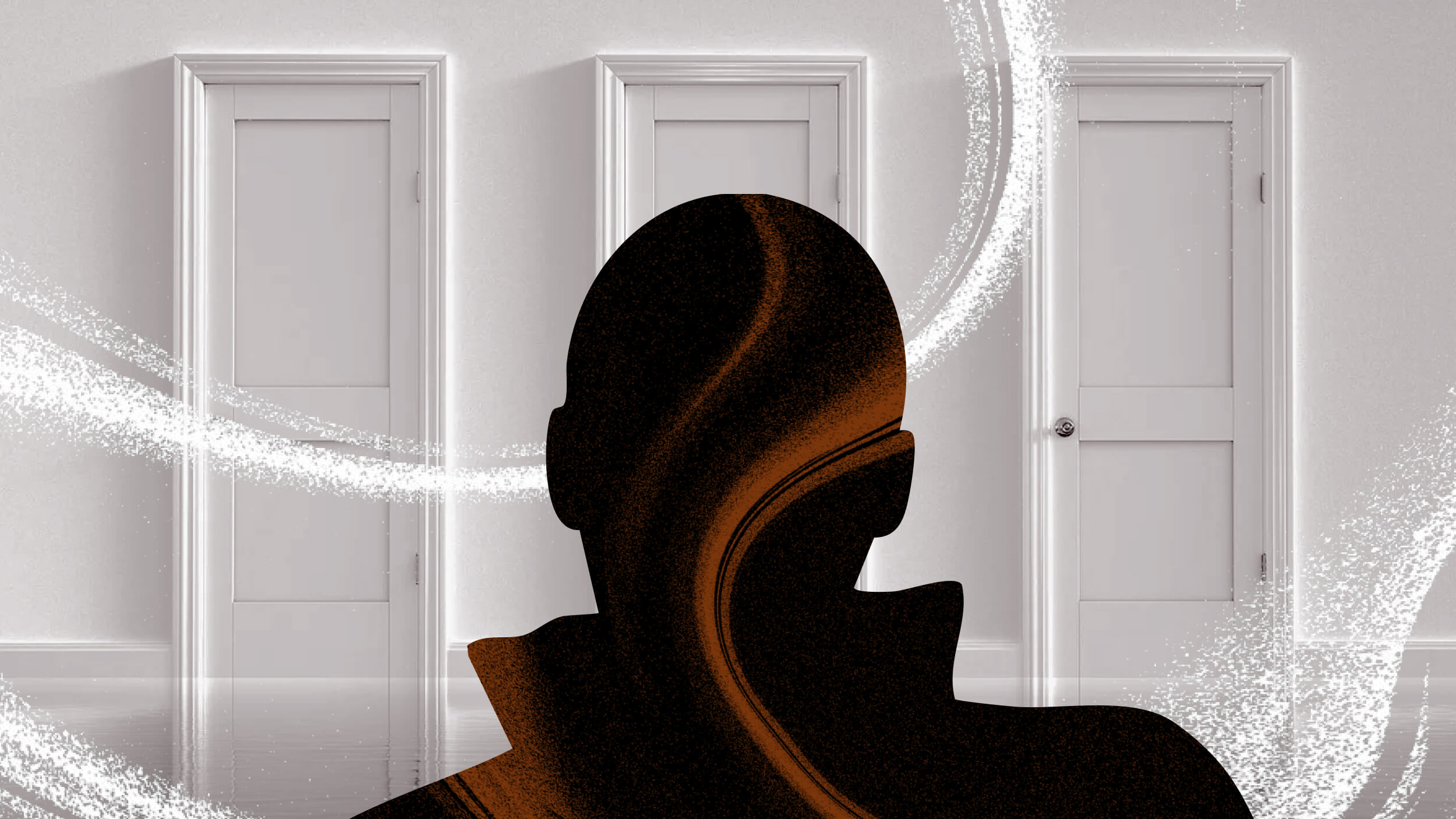Optimistic people tend to live longer than pessimistic people. That’s true whether you’re rich or poor, young or old, and no matter your race, says sociologist William Magee. As part of a five-year study on hope and optimism—a collaboration between the Templeton Foundation and Notre Dame, Cornell, and the University of Pennsylvania—Magee looked at what personal characteristics overlap with having an optimistic worldview. Are the well-educated naturally more optimistic? What about those who have a financial advantage in life? As Magee explains, reverse causality can obscure the relationship between education, class and optimism (does good education produce optimism, or vice versa?), but more immutable factors such as age, race, and gender paint a more realistic picture.
William Magee: It’s clear that in terms of optimistic positivity as a predictor of mortality it does predict mortality, and it predicts mortality when you control for lots of different self-reported health problems, depression, scales that have been validated, self-reported health.
If you’re interested in predicting things from optimism—or optimistic positivity—you want to look at what predicts it. And that’s what I was focusing on in that first paper. So we have three papers already started. Basically we’re looking at explicit measures of optimism as well as these—we’re using wording effects to measure what we’re calling implicit measures of perceptual optimism and pessimism.
That positive wording bias is a form of optimism. But if you’re looking at the world in more positive ways you’re taking information in and you’re framing it in positive ways. And you’re seeing it so you’re reacting to it in positive ways. Sometimes in a way that you don’t even know that you’re doing, right? It’s so subtle, it’s like a wording effect that you couldn’t say—it’s not like I’m asking you: Are you responding this way to these words or that way to those words? We can detect it statistically over people.
So when you’re asking people to say things about themselves on a survey, for example, you’re asking them: “Are you a good person? Are you a competent person?” There’s a whole series of questions you can ask them. Some of them are worded positively, some of them negatively, and usually those wordings, those survey questions are used to create scales of things like self-esteem, self-efficacy, mastery.
And there’s a latent variable. The idea is that there’s something out there that is latent, and it explains some variance in how people answer these questions.
And we’re putting that together with some measures that ask people about how optimistic they are using language, explicitly, and saying that together those things create this phenomena. And we’re saying that the phenomena goes deep, to the level of perception.
Is it itself a form of stratification? Is there something about optimism that’s a resource that we can understand as a psychological good, like happiness, right. And so if it’s stratified in a population how is it associated with other kinds of stratification—income and so forth, education? And so you’re saying, well: class. The real interesting one is class, right? Everybody wants to know: "Pull yourself up by your bootstraps, think positively, you’ll be successful. If you’re optimistic you’ll be successful." But of course if you’re successful you’re going to be optimistic so there’s the reverse causality thing, and so taking a class and looking at classes is a really interesting part that I want to get to.
And I think that’s an interesting question because there’s a lot of theory around sociology and emotions, around the idea that expectations are created. The ability to meet expectations generates energy. That energy is what allows people to do things, that emotional energy. And then it replicates itself. So people are convinced to be optimistic, especially the middle classes. And if they’re not able to achieve those expectations then their energy goes down, and they become dissatisfied.
There’s some difference with cohorts. I know I see with race difference, I see cohort differences. When you were born. And that makes sense in terms of things like the civil rights movement and what you experienced in your life, right? And in your hopes and dreams and so forth.
But the question I’m looking at now first, of course, is while you can’t change, you know there’s not much way that your optimism or pessimism is going to change your gender in a statistically significant way. It might change. People can change their genders. But it’s not going to change your age. It’s not going to change your birth cohort. And race, very small effect. So I’m looking at those things that influence, that can be understood as causes of, and they can’t be reverse causality first.
So that’s what I’ve been doing, and we ran these models, and what do we see? Well we saw that when you look at all these things—race, birth cohort, age and gender—together, that there’s these curves. And the curves are interesting. They start off with men being more optimistic than women. There’s a convergence in midlife and then a divergence again where men are more optimistic, optimistic positivity, higher optimistic positivity than women.
We see race trends, and those vary by cohort. People born before 1932: whites are more optimistic than blacks. For all these people optimism, optimistic positivity, declines with age. So we’re seeing these trends over time declining with age. But whites are more optimistic than blacks and it's declining. But for people born after 1932 we see blacks having higher levels of optimistic positivity—these are Americans, right, all U.S. data—having higher levels of optimistic positivity than whites over the age period. They’re still declining.
That’s optimistic positivity. What about pessimistic negativity, right? Blacks are consistently higher than whites in this pessimistic negativity across cohorts.
So we can look at those things and say, you know, people who got more schooling past high school, they were optimistic when we first measured them and they were more likely to get some schooling, and we can try to control for other things and say it’s really the optimism that’s influencing the schooling.
We could also try to say their class background is influencing their optimism and pessimism. And I think that’s—we’re in a better position to say something about that.
We can look at them over 25 years. We don’t have what you were born with, right? We don’t have what you started off with. We do have what your parents, what income your parents made, how much schooling you got and so forth.
What I was thinking about this was that, I really came of age, I graduated high school in 1976. We had society programs in place. There was really opportunity for people who—I went to Somerville High but at that time it was called “Slum-erville”. It’s a place now that’s very—houses worth millions of dollars and so forth. But at that time it was a working class neighborhood. I wasn’t a great student. I got into university. I did well in university because the only option I saw was joining the air force or the army. And now I’m a professor, right.
So I was thinking about my career in terms of this project and the opportunities I’ve had. And I mean I’m a pessimistic person, but I took advantage of the opportunities because I saw that there were doors. The way society is structured is that there’s doors and if you can jump through them it doesn’t really matter what your skill is that much. Their divisions are fine grained and if you can get through that door you get all sorts of resources and then you’re going to get to the next level. So I became optimistic about academia in a way that allowed me to continue to put my nose to the grindstone and not to think too much about it because the resources were there. I made the decision.
But really the point I wanted to make was these policies, these programs, kids don’t have them anymore. Now I teach, and the kids see that the middle is getting hollowed out. And they’re anxious. Mental health problems in university have gone through the roof. And the universities don’t know how to deal with it. And I can see why they have, because the opportunities aren’t there and the kids realize that there’s a bifurcation, right. There’s a make it or break it.
So I look at myself, I look at my own history, and I say I was in the tail-end of the Baby Boom and I profited economically in some ways, socially in some ways. But in other ways maybe not. And so I look at these generational differences now and I can understand now going back to business, right, going in: Somebody gets a job in the Gig Economy, right? What’s their mentality like? “There’s another gig down the road, I’ll make it work to the extent I can,” or has it become like, “This has to really work and if this doesn’t work I’m screwed in my career.” I don’t really know. I don’t think anybody really knows what’s happening in these areas that you’re interested in, in terms of work and what the possibilities are. There are some interesting questions that you have to ask.




